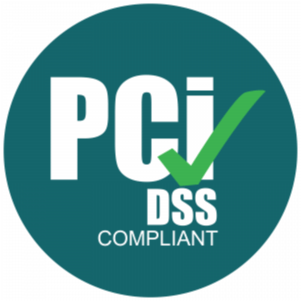Posted by Anne-Marie Avalon
May 13, 2024
Businesses often spread their digital assets across multiple cloud platforms to enhance resilience, flexibility, and cost efficiency. Cloud computing, as the foundation of today’s digital infrastructure, enables businesses to leverage multi cloud architecture for unparalleled resilience and flexibility.
This strategy introduces the challenge of managing cryptographic keys across diverse environments. A Key Management System (KMS) that supports multi-cloud emerges as a critical solution for this challenge, offering a unified approach to manage encryption keys across various cloud environments. But what does it entail, and why is it crucial for modern cloud defense strategies?
Understanding Hybrid and Multi-Cloud Key Management
A Key Management Service (KMS) is an essential technology that enables organizations to handle encryption keys securely and efficiently. It performs several critical functions, such as the generation, storage, management, and retirement of cryptographic keys. This central management ensures compliance with security policies and regulatory requirements.
In a multi-cloud environment, a multi-cloud KMS extends these capabilities across various cloud platforms. It allows organizations to maintain a unified control over their encryption keys, even when their data and applications are distributed across different cloud providers. This is crucial for organizations that utilize a hybrid or multi-cloud strategy, as it simplifies security management across diverse environments.
One important aspect of modern KMS solutions is the concept of Bring Your Own Key (BYOK). BYOK allows organizations to generate their own encryption keys using a trusted platform, and then import those keys into the cloud provider’s environment. This practice gives organizations greater control over the security of their data, as they can manage the key lifecycle independently, ensuring that the keys are handled according to their own security standards and compliance requirements.
Integral to Cloud Service Providers’ Defense
In the context of cloud defense, a Multi-Cloud Key Management Service (KMS) is fundamental in fortifying data protection. It secures data by managing the encryption keys that safeguard this data across various cloud platforms. Effective key management prevents unauthorized access and is crucial in averting data breaches and maintaining data privacy. Here’s how a multi-cloud KMS contributes to greater security:
Centralized Control Over Encryption Keys
A multi-cloud KMS provides a centralized point of control for encryption keys, regardless of where the data resides. This centralized management helps ensure consistent application of security policies and encryption standards across all cloud environments. It simplifies the oversight and control mechanisms, making it easier to manage and monitor key usage and lifecycle.
Redundancy and Reliability
By distributing keys across multiple cloud providers, a multi-cloud KMS reduces the risk associated with a single point of failure. If one cloud provider experiences a security breach or a service disruption, the keys and therefore the data managed under other providers remain secure and accessible. This redundancy is crucial for maintaining business continuity and ensuring data availability during crises.
Prevention of Unauthorized Access
With a multi-cloud KMS, encryption keys are stored and managed separately from the data they protect, often in a different cloud environment. This separation ensures that even if data storage is compromised, the keys remain secure, preventing unauthorized data decryption. Moreover, advanced key management services enforce strict access controls and auditing capabilities, further reducing the likelihood of unauthorized access.
Compliance and Regulatory Adherence
Multi-cloud KMS solutions facilitate compliance with various regulatory standards that mandate strict data protection measures, such as GDPR, HIPAA, and PCI DSS. By using a KMS that spans multiple clouds, organizations can ensure that their key management practices meet the required standards across all operational environments.
Agility and Flexibility
Employing a multi-cloud KMS allows organizations to be more agile and flexible in their cloud strategies. They can move encrypted data between different providers without re-encrypting with new keys or modifying their underlying security infrastructure. This capability is particularly valuable in avoiding vendor lock-in, enabling companies to choose the best cloud services without compromising on security.
Why Opt for a Multi-Cloud KMS to Avoid Vendor Lock-In?
Adopting a Multi-Cloud KMS is not just about managing keys; it’s about ensuring the security and compliance of your data across cloud platforms, including multiple public cloud services from different cloud providers. This strategy emphasizes the importance of a streamlined, secure approach to key management in a multi-cloud environment, which involves the use of multiple cloud storage services from different cloud providers, including public cloud platforms. It’s indispensable for organizations seeking flexibility, workload management, and risk reduction across a distributed IT landscape, allowing them to run workloads on any public cloud that the business requires and migrate, manage, and secure applications consistently regardless of where they are deployed.
The Role of the Akeyless Platform in Multi-Cloud KMS
The Akeyless Platform provides a comprehensive solution for Multi-Cloud KMS, aligning with the need for cloud defense mechanisms. Let’s delve into how Akeyless supports businesses in this arena.
Unified Management Across Clouds
The Akeyless Platform enables businesses to manage keys across any cloud environment, including hybrid cloud setups, from a single, centralized platform. This simplifies operations and enhances security by offering a consistent management experience, irrespective of the cloud provider.
Enhanced Security with DFC
Akeyless utilizes Distributed Fragment Cryptography (DFC) to elevate the security of key management. By keeping encryption keys fragmented and never whole in any one location, Akeyless minimizes the risk of key compromise.
Streamlining Operations and Reducing Costs
Opting for the Akeyless Platform can lead to significant operational efficiencies and cost savings. The platform’s design eliminates the need for extensive manual management of keys, allowing teams to focus on core business functions. Leveraging multiple cloud service providers and cloud vendors can further enhance these benefits by offering access to unique features, cost-effectiveness, and avoiding vendor lock-in, which are crucial for managing a multi-cloud architecture effectively.
Akeyless: Simplifying Multi-Cloud Security
Akeyless is at the forefront of simplifying multi-cloud security, offering a scalable, secure, and efficient solution for key management across various cloud environments. By integrating Distributed Fragment Cryptography (DFC), Akeyless ensures that encryption keys are split into fragments and securely managed, combining them only when necessary and under strict controls to minimize the risk of compromise. This approach not only enhances security but also provides businesses with the flexibility to avoid vendor lock-in by enabling easy migration of keys between cloud providers. Specifically, Akeyless supports both multi-cloud and hybrid cloud environments, showcasing its versatility in managing and securing diverse cloud deployments. This capability is crucial for organizations that require robust security measures that adapt to dynamic cloud strategies, allowing them to manage, migrate, and secure applications consistently, irrespective of the cloud environment.
Conclusion: Navigating Multi-Cloud Challenges with Akeyless
Navigating the complexities of multi-cloud environments requires a robust key management strategy. Managing keys across multiple clouds, including private cloud and public cloud provider environments, is crucial to avoid the risks associated with relying on a single cloud provider. The Akeyless Platform offers a solution that not only addresses the security and operational challenges of multi-cloud KMS but also aligns with the goal of enhancing overall cloud defense. Explore leveraging Akeyless for your multi-cloud KMS needs by seeing it in action today!












